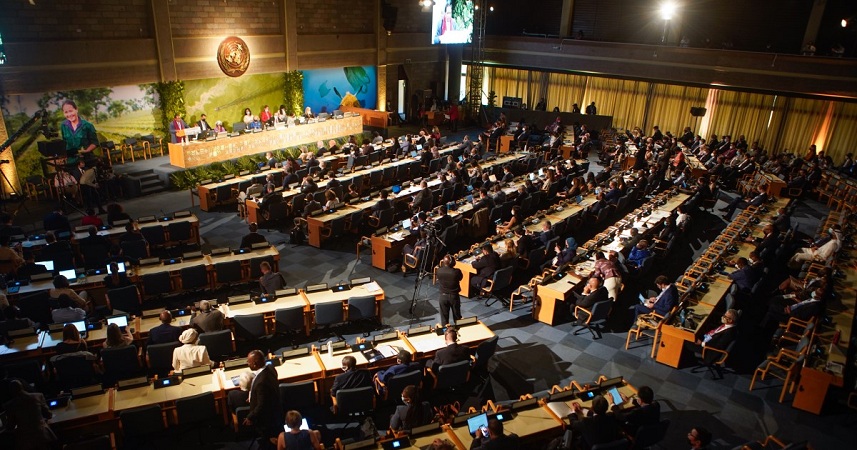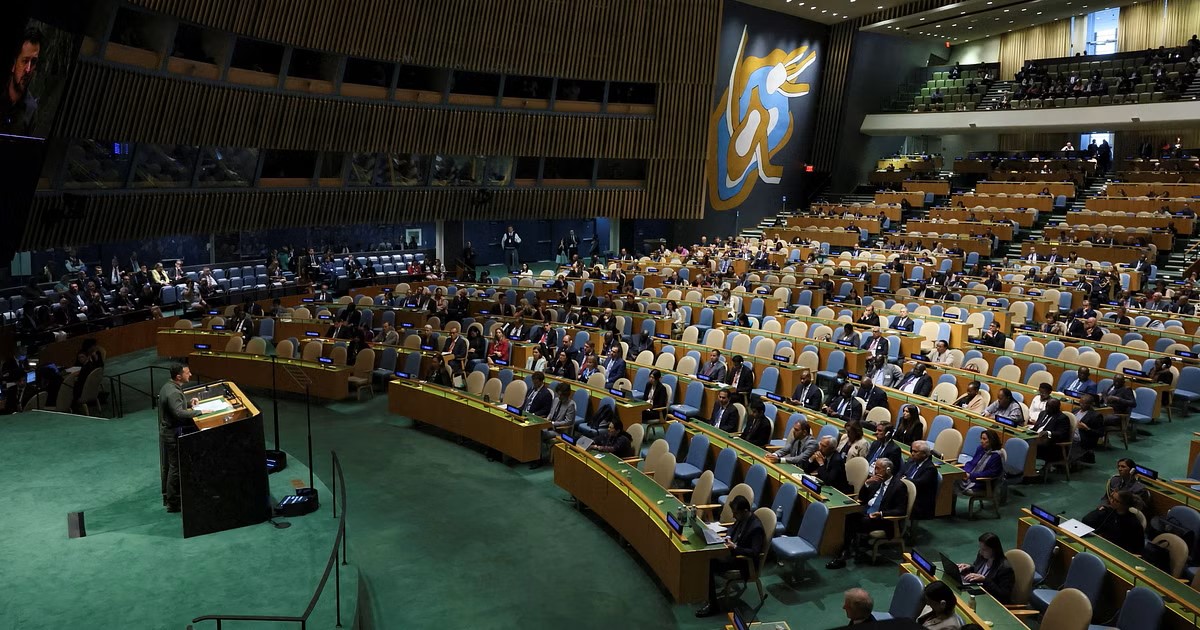The United Nations Environment Assembly (UNEA) recently concluded its sixth session in Nairobi, Kenya, with a significant victory for India’s environmental leadership. The assembly unanimously adopted a resolution on promoting sustainable lifestyles, championed by India, marking a crucial step towards collective global action on environmental sustainability. This resolution is a testament to India’s growing influence on the world stage and its commitment to tackling pressing global challenges, such as climate change and environmental degradation.
 This resolution builds upon Prime Minister Narendra Modi’s vision for Mission LiFE (Lifestyle for Environment), launched in October 2022. Mission LiFE aims to inspire a paradigm shift in our approach to sustainability, recognizing that individual choices and actions, scaled up collectively, can have a significant impact on the environment. It follows a three-pronged strategy:
This resolution builds upon Prime Minister Narendra Modi’s vision for Mission LiFE (Lifestyle for Environment), launched in October 2022. Mission LiFE aims to inspire a paradigm shift in our approach to sustainability, recognizing that individual choices and actions, scaled up collectively, can have a significant impact on the environment. It follows a three-pronged strategy:
- Nudging individuals: Encouraging individuals to embrace simple yet effective eco-friendly actions in their daily lives, such as reducing energy consumption, adopting responsible waste management practices, and opting for sustainable transportation choices. These seemingly small actions, when adopted by a large population, can collectively contribute to a significant reduction in environmental footprint.
- Enabling industries and markets: Working with industries and markets to respond swiftly to the changing demand for sustainable products and services, fostering innovation and creating a conducive environment for businesses to adopt sustainable practices. This includes promoting green technologies, eco-friendly packaging, and responsible supply chains, while also encouraging consumer awareness and responsible purchasing behaviour.
- Influencing government and industrial policy: Advocating for government and industrial policies that support both sustainable consumption and production, creating a systemic framework that incentivizes and facilitates the transition towards a more sustainable future. This involves implementing policies like carbon pricing, green infrastructure investments, and tax breaks for sustainable businesses, while also promoting research and development in clean technologies and renewable energy solutions.
The resolution acknowledges the interconnectedness of the three pillars of sustainable development: environmental, social, and economic. It recognizes that achieving a sustainable future necessitates a multi-stakeholder approach involving collaboration between various actors:
- Member States: By creating enabling conditions that support sustainable consumption and production patterns, such as investing in green infrastructure, promoting education for sustainable development, and implementing policies that incentivize sustainable choices. This includes fostering public awareness campaigns, providing accessible information on sustainable practices, and encouraging the development of green infrastructure, such as public transportation systems and renewable energy sources.
- Public and Private Sectors: By fostering collaboration and partnerships to develop innovative solutions, green technologies, and sustainable business models that address environmental challenges. This includes joint research and development initiatives, co-creation of sustainable products and services, and public-private partnerships for infrastructure development and resource management projects.
- Civil Society Organizations: By raising awareness, promoting public engagement, and advocating for policies that support sustainable lifestyles. This involves organizing community outreach programs, educating individuals on sustainable practices, and lobbying governments for policies that incentivize sustainable choices and hold corporations accountable for their environmental impact.
- Indigenous Peoples and Local Communities: By recognizing their unique knowledge, traditions, and practices for living in harmony with nature and integrating their valuable insights into sustainable development strategies. This involves actively engaging with indigenous communities, respecting their cultural heritage and traditional ecological knowledge, and incorporating their perspectives into policies and solutions for sustainable living.
The resolution encourages the sharing of information, best practices, and research on sustainable living. This knowledge exchange will serve as a valuable resource for:
- Developing national and regional action plans: Countries can tailor their approaches to sustainable living based on their specific contexts and challenges, drawing upon the experiences and best practices of others. This allows for the creation of targeted and effective strategies that address the specific needs and circumstances of each region or nation.
- Fostering innovation: Sharing successful models and innovative solutions can inspire and guide other communities and nations in their efforts to promote sustainable living. This cross-pollination of ideas can accelerate the development and adoption of innovative solutions, accelerating the transition towards a more sustainable future.
- Building capacity: This knowledge exchange can also contribute to building the capacity of various stakeholders, including policymakers, businesses, and individuals, to implement effective strategies for sustainable living. This involves providing training programs, workshops, and educational resources to equip individuals and organizations with the knowledge and skills necessary to make informed decisions and take concrete actions towards promoting sustainability.



